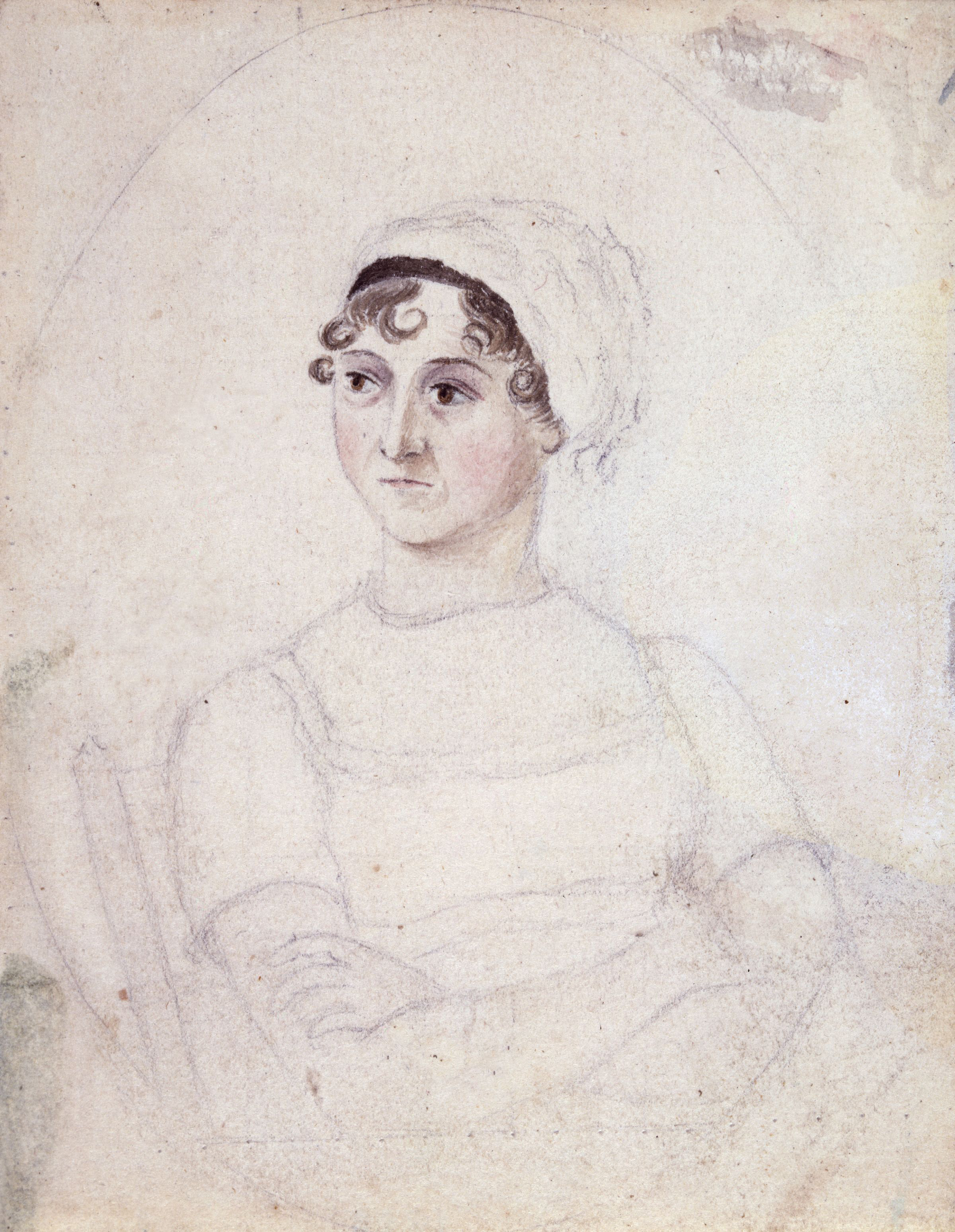Jane Austen słynne cytaty
tłum. Ewa Partyga (wyd.: Prószyński i S-ka, Warszawa 2010, s. 125).
Perswazje (1817)
„Byłoby z nich dobre małżeństwo, bo on bogaty, a ona ładna.”
Rozważna i romantyczna (1811)
„Pieniądze mogą dać szczęście tylko tam, gdzie nie możne ono przyjść z innego źródła.”
Rozważna i romantyczna (1811)
„Każda rzecz zyskuje czasem, w szczególnych okolicznościach, wartość wyższą niż realna.”
Rozważna i romantyczna (1811)
Jane Austen Cytaty o kobietach
tłum. Anna Przedpełska-Trzeciakowska
Opactwo Northanger (1818)
tłum. Ewa Partyga (wyd.: Prószyński i S-ka, Warszawa 2010, s. 146).
Perswazje (1817)
Jane Austen Cytaty o ludziach
Jane Austen cytaty
„Nie ma zawodu – a więc to gentleman!”
Rozważna i romantyczna (1811)
„Serce każdego człowieka mięknie, gdy uda mu się uciec przed bólem i wrócić do zdrowia.”
tłum. Ewa Partyga (wyd.: Prószyński i S-ka, Warszawa 2010, s. 124).
Perswazje (1817)
„Ze wszystkich okropnych rzeczy w życiu najokropniejsze jest pożegnanie.”
Postać: Frank Churchill
Emma
Źródło: rozdział 30, s. 266
tłum. Anna Przedpełska-Trzeciakowska
Opactwo Northanger (1818)
Postać: Jerzy Knightley
o panu Eltonie, którego chciała swatać Emma.
Emma
Źródło: rozdział 1, s. 14
„Uprzejmość nakazywała jej równie gorąco jak Annie pragnąć spaceru z panem Elliotem.”
tłum. Anna Przedpełska-Trzeciakowska
Perswazje (1817)
tłum. Ewa Partyga (wyd.: Prószyński i S-ka, Warszawa 2010, s. 185).
Perswazje (1817)
„Nieśmiałość to skutek poczucia własnej niższości.”
Rozważna i romantyczna (1811)
tłum. Ewa Partyga (wyd.: Prószyński i S-ka, Warszawa 2010, s. 185).
Perswazje (1817)
„Myśl o przeszłości tylko wtedy, kiedy może ci ona sprawić przyjemność.”
Duma i uprzedzenie (1813)
tłum. Ewa Partyga (wyd.: Prószyński i S-ka, Warszawa 2010, s. 125).
Perswazje (1817)
Rozważna i romantyczna (1811)
„Jest prawdą powszechnie znaną, że samotnemu a bogatemu mężczyźnie brak do szczęścia tylko żony.”
Duma i uprzedzenie (1813)
tłum. Anna Przedpełska-Trzeciakowska
Perswazje (1817)
„Ludzkość cierpi na niedobór mężczyzn, w szczególności zaś mężczyzn, którzy są czegoś warci.”
Duma i uprzedzenie (1813)
tłum. Ewa Partyga (wyd.: Prószyński i S-ka, Warszawa 2010, s. 186).
Perswazje (1817)
tłum. Ewa Partyga (wyd.: Prószyński i S-ka, Warszawa 2010, s. 124).
Perswazje (1817)
„(…) doprawdy, martwiła się tym, że nie potrafi się martwić.”
Mansfield Park (1814)
„Już ustaliliśmy, że będziemy najszczęśliwszą parą na świecie.”
It is setled between us, already that we are to be the happiest couple in the world. (ang.)
Duma i uprzedzenie (1813)
tłum. Anna Przedpełska-Trzeciakowska
Perswazje (1817)
tłum. Ewa Partyga (wyd.: Prószyński i S-ka, Warszawa 2010, s. 147).
Perswazje (1817)
„Doprawdy, to było niemal ponad moje siły siedzieć i wołać na mopsika, żeby nie biegał po rabatach.”
Mansfield Park (1814)
Jane Austen: Cytaty po angielsku
Letter (1801-05-12) [Letters of Jane Austen -- Brabourne Edition]
Letters
Letter (1799-01-21) [Letters of Jane Austen -- Brabourne Edition]
Letters
'The History of England (1791)
Works, History of England
“I cannot help thinking that it is more natural to have flowers grow out of the head than fruit.”
Letter to Cassandra (1799-06-11) on decorating her hat [Letters of Jane Austen -- Brabourne Edition]
Letters
Letter (1811-04-30) [Letters of Jane Austen -- Brabourne Edition]
Letters
“It was in this reign that Joan of Arc reigned and made such a row among the English.”
'The History of England (1791)
Works, History of England
Virginia Woolf, The Common Reader (1925)
Virginia Woolf, A Room of One's Own (1929), Chapter 4
Thornton Wilder, A preface for Our Town (1938)
Anthony Trollope, Lecture (1870)
Bertrand Russell, in The Conquest of Happiness (1930), Ch. 4: Boredom and excitement
Harriet Martineau, Harriet Martineau's Autobiography, vol. 1 [1855]
William Dean Howells, Criticism and Fiction (1891), Chapter 15
E.M. Forster, Aspects of The Novel (1927)
G. K. Chesterton, The Victorian Age in Literature (1913)
Charlotte Brontë, quote in Original Penguin Classics Introduction to Pride and Prejudice. by Taner, Tony (1972). 80 Strand, London, WC2R, England: Penguin Books, Ltd. ISBN 0-141-43951-3.
The comic part of the character I might be equal to, but not the good, the enthusiastic, the literary. Such a man's conversation must at times be on subjects of science and philosophy, of which I know nothing; or at least be occasionally abundant in quotations and allusions which a woman who, like me, knows only her own mother-tongue, and has read little in that, would be totally without the power of giving. A classical education, or at any rate a very extensive acquaintance with English literature, ancient and modern, appears to me quite indispensable for the person who would do any justice to your clergyman; and I think I may boast myself to be, with all possible vanity, the most unlearned and uninformed female who ever dared to be an authoress.
Letter to Mr. Clarke, librarian to the Prince Regent (1815-12-11) [Letters of Jane Austen -- Brabourne Edition]
Letters
Dignity in the sentiments, dignity in the style. Quite a woman's book — (don't frown, Miss Fytche — I mean it for compliment) — none but a woman & a lady could possess that tact of minute observation, & that delicacy of sarcasm.
Arthur Henry Hallam, letter to fiancé Emily (Emilia) Tennyson (1833-01-25), Jane Austen and her Readers, 1786-1945, by Katie Halsey (Anthem Nineteenth-Century Series)
W. H. Auden, Letter to Lord Byron (1936), lines 113–119
that must do; one cannot pretend to anything better now; thankful to have it continued a few years longer!
Letter (1811-04-30) [Letters of Jane Austen -- Brabourne Edition]
Letters
“…why did we wait for any thing? — why not seize the pleasure at once?”
How often is happiness destroyed by preparation, foolish preparation!
Emma (1815)
Works, Emma
“A large income is the best recipe for happiness I ever heard of.”
Mansfield Park (1814)
Works, Mansfield Park
“The pride of any mother is to give birth to a responsible and successful child.”
Quoted in: Kabir, Hajara Muhammad (2010). Northern women development. [Nigeria]. ISBN 978-978-906-469-4. OCLC 890820657
Works, Pride and Prejudice
